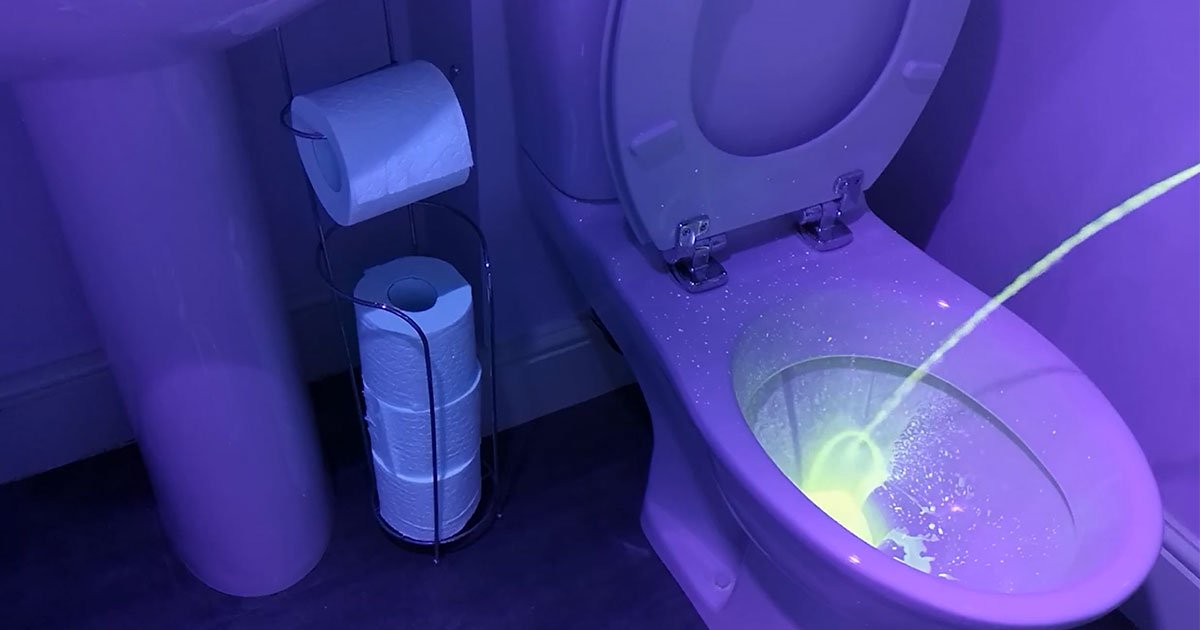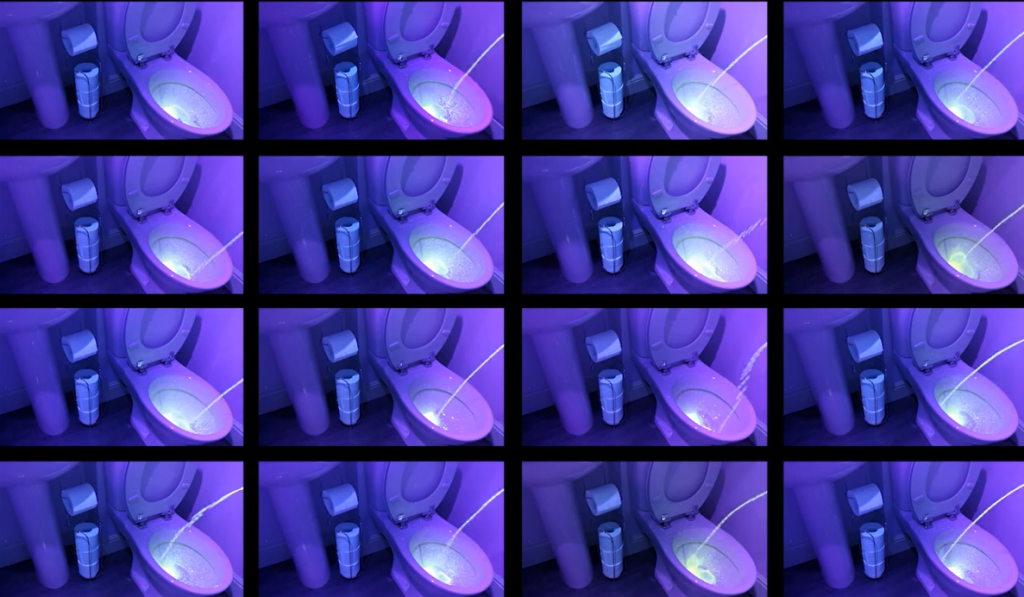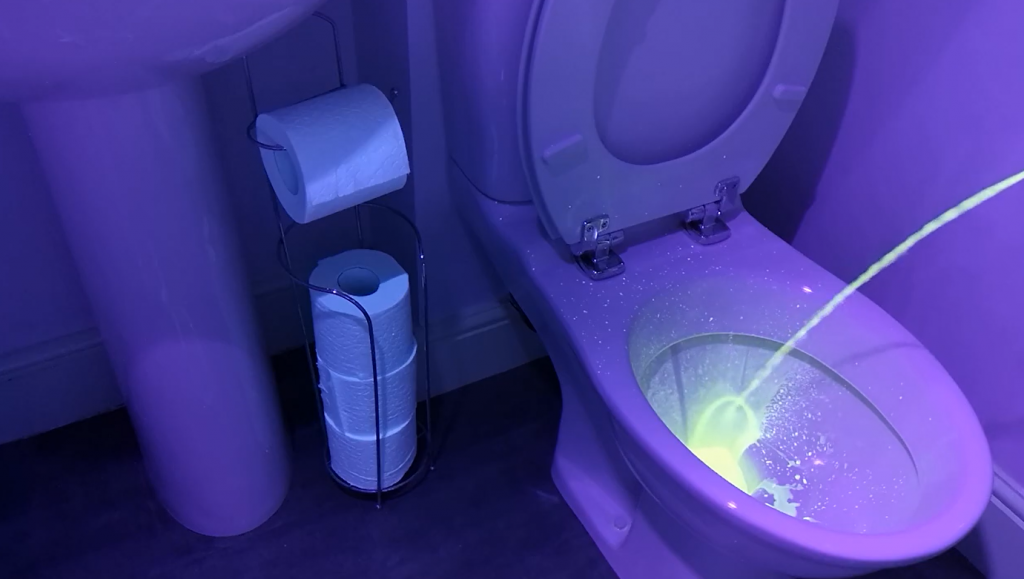A series of grim UV tests showed that tiny droplets of urine can splash as far as 36 inches which means almost an entire meter.
The test was carried by QS Supplies and they discovered 69 per cent of man usually pee standing rather than sitting, and 31 per cent of those men pee sitting because they think it will cause the least amount of splashback.
The droplets flew during QS Supplies’ tests was 36 inches nearly 1 meter and one in 4 people they spoke to said their toothbrush was within this distance.
According to their test, only 17% usually sit down to urinate and those who directly aim into the water, ‘’produce a smaller number of large drops and cut ‘excessive splashing’ of tiny drops. Spread was also reduced.’’
QS Supplies explains: ”Usually, splashes are only noticed by the man who’s peeing or the person who uses the bathroom after him if large droplets happen to fly onto the seat or floor, but by using ultraviolet light and fluorescent liquid, we exposed droplets of every size and exactly where they flew.”
”Urine is only visible under ultraviolet light when dry, so we had to simulate streams accurately using fluorescent liquid and a mechanical urethra. That meant faithfully reproducing every element of typical standing urination, including volume, flow rate and curve, trajectory and stream shape.”
”Once our urination analogue was successfully benchmarked against the output of a healthy adult male (20 ml/s for an average duration of 10 seconds per visit), we simulated dozens of streams from a standing position.”
“They found fellas aiming for the rear wall of the toilet bowl created the most droplets and the widest spread.”
”The next most commonly employed method for reducing splashback is aiming directly into the water. 29% of men use this approach. In our tests, aiming into the water prevented excessive splashing of tiny droplets and created a smaller number of large drops. These mostly stayed within the toilet bowl but sometimes flew onto the rim or further.”
However, whichever technique you use splashes will be produced while peeing in standing position.




